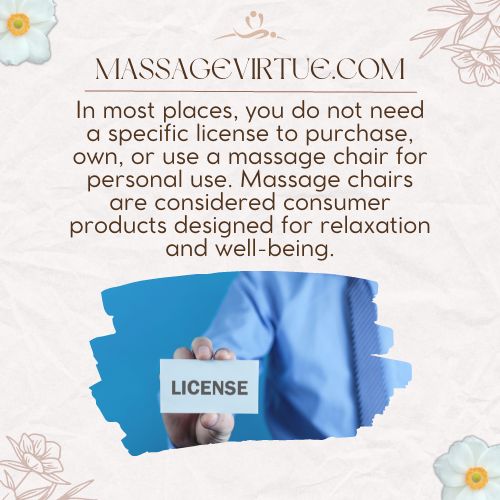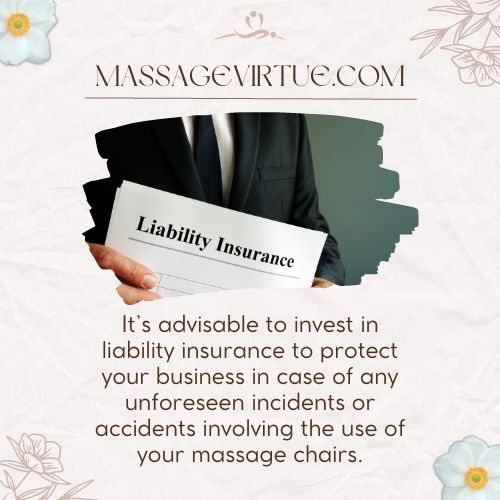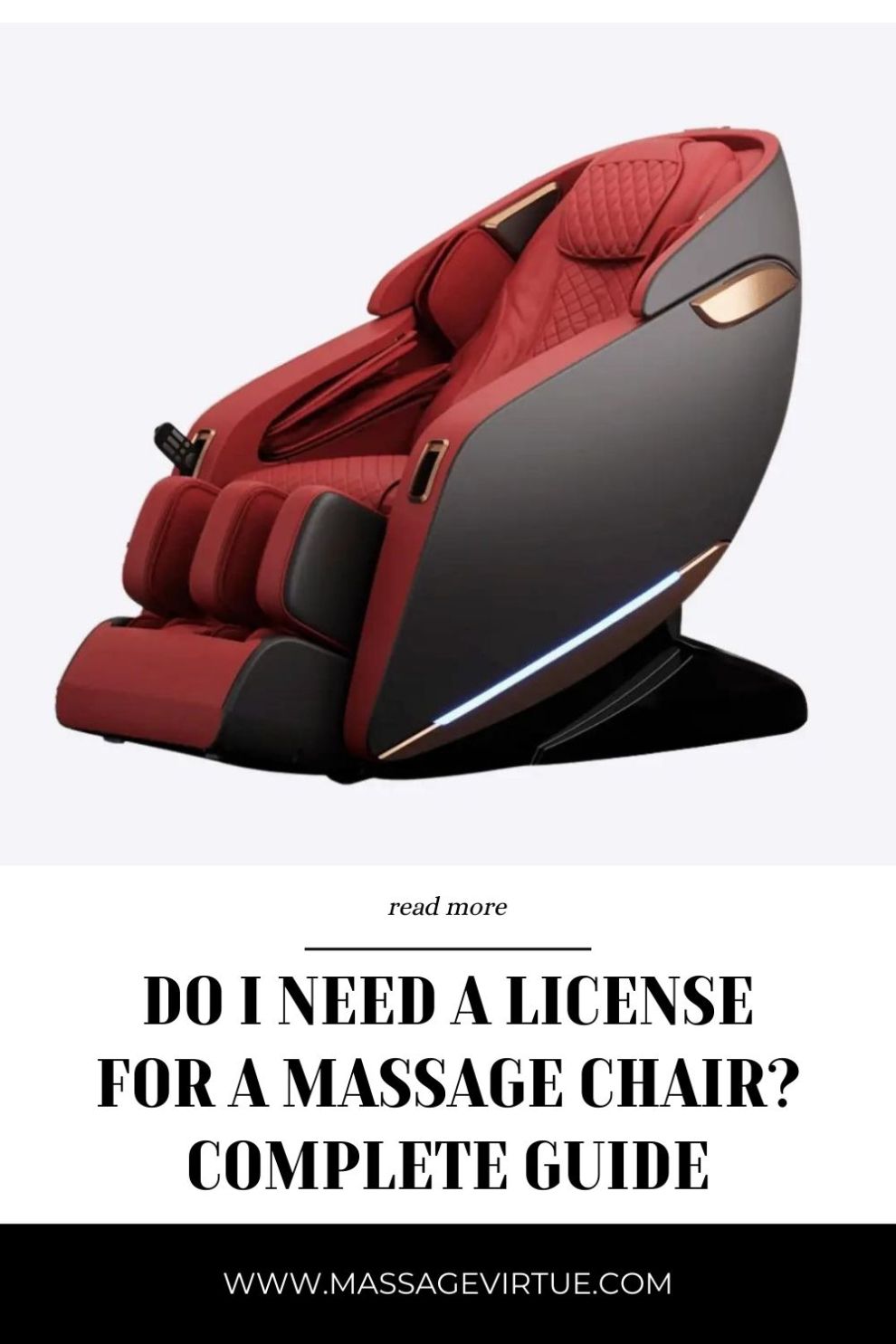If you’re considering the purchase of a massage chair, you might be wondering whether you need a license to use it.
After all, massage chairs are designed to provide relaxation and therapeutic benefits, but do they fall under any specific regulations? In this article, we’ll explore the laws and regulations surrounding massage chairs, helping you make an informed decision.
So without further ado, let’s get started.
Do I Need a License for a Massage Chair?
Now, let’s address the burning question: Do you need a license to own and use a massage chair? The short answer is no.

In most places, you do not need a specific license to purchase, own, or use a massage chair for personal use.
Massage chairs are considered consumer products designed for relaxation and well-being.
They are not classified as medical devices, which means you don’t need a medical license to operate them. However, there are some important nuances to consider.
Massage Chair Laws and Regulations
While you don’t need a license to use a massage chair at home, there are laws and regulations governing the use of massage chairs in a business setting.
If you plan to operate a massage chair business, these rules may apply to you.
Massage Chair Businesses and Licensing
If you’re interested in starting a business that involves providing massage chair services to the public, there are certain considerations you should keep in mind:
1. Business Registration
First, you’ll need to register your business with the appropriate government authorities.
This process typically involves selecting a business structure (e.g., sole proprietorship, LLC, corporation) and obtaining the necessary permits and licenses for operating a business in your area.
2. Health and Safety Regulations
While you may not need a specific license for the massage chairs themselves, you will still need to adhere to health and safety regulations applicable to your business.
This may include maintaining a clean and hygienic environment, ensuring the safety of your clients, and complying with local health codes.
3. Liability Insurance
It’s advisable to invest in liability insurance to protect your business in case of any unforeseen incidents or accidents involving the use of your massage chairs.

4. Compliance with State Laws
Massage chair regulations can vary by state, so it’s crucial to research and understand the specific laws and requirements in your jurisdiction.
Some states may have unique regulations related to massage equipment.
Are Massage Chairs Medical Devices?
Massage chairs are not classified as medical devices, but they do have therapeutic benefits.
Some people use them to alleviate medical conditions like back pain, muscle tension, and stress-related disorders.
However, using a massage chair for medical purposes does not require a medical license.
Pros and Cons of Massage Chairs
| Pros | Cons |
| Convenient and on-demand massages | High initial cost |
| Cost-effective in the long run | Requires maintenance and repairs |
| Stress relief and improved well-being | Takes up space |
| Privacy in your own space | Effectiveness varies by individual |
Conclusion
In summary, it’s important to note that for personal use, you typically do not require a license to own and enjoy the benefits of a massage chair.
It’s a convenient and accessible way to relax and alleviate stress within the comfort of your home or office.
However, if you’re considering the establishment of a massage chair business, the regulatory landscape may differ. In this scenario, you should be prepared to obtain a business license and adhere to the specific local regulations governing businesses.
FAQs
Can You Give Massages Without a License in Oregon?
In Oregon, it is prohibited to practice massage without a license.
This is outlined in ORS 687.021, which clearly states that individuals must hold a valid massage therapy license to legally practice massage in the state of Oregon.
Therefore, offering massages without the required license is not allowed.
Can I Give Massages in Texas Without a License?
Similarly, in Texas, a state license is mandatory for advertising or practicing massage therapy.
The regulations governing massage therapy in Texas make it explicit that individuals offering massage services must possess the appropriate state license.
Failure to do so is a violation of state law.


